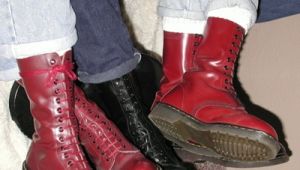To look back on the past is to see the ocean we have travelled, pulled by tides and pushed by currents through storms and calm, and memories are buoys plotting our lives. These markers are songs, flavours, objects, and occasionally something unexpected: I couldn't tell you what we were dancing to in the year 2000, but whatever it was, my summer soundtrack lived on a minidisc.
The minidisc sits between the CD and the MP3. The early promise of the CD - Tomorrow's World said they were unbreakable - was turning sour. CDs are many things, but incorruptible they are not, as anyone who has tried to change one mid-sex before wiping down their hands with a lint-free cloth will agree. The limitations of the CD became obvious when they tried to make the players portable: anyone who bought a Sony Discman soon tired of the jittery sound experience, the device falling into disuse even before the batteries had run down, which in those days was about when you reached the bottom of the driveway. The gentle glide with which portable CD players had to be coaxed from A to B at least popularised rollerblades (of which, sure enough I had a pair in 1998).
The minidisc solved all this. Encased in plastic, the disc was protected from dust and KY jelly alike. It was smaller even than a cassette, you could name the tracks so they ticketed across a liquid crystal display, and the content could be ordered and shuffled much as on an MP3 player (though there was only an hour to play with rather than x thousand tracks). You could lend to a friend without having to enable their computer, delete unwanted tracks, and they even came in snazzy jewel cases to assure you that you were inhabiting the future: next up, the silver onesie and a flying car.
What went wrong? Timing. My father drummed into me the importance of buying quality: brought up in the 50s, he liked things to be solid, reliable, lasting. When dad shattered his kneecap on his own home-made coffee table, he took the four subsequent operations as the ultimate compliment to his craftsmanship. Convalescing, he sat with his foot on the offending (and unharmed) table, his brain on Mogadon, watching movies on Betamax. Though I didn't know it at the time, this was a scene loaded with symbolism.
More...
Confessions Of A Former Record Shop Employee
My Entire CD Collection Into One Playlist: Now That's What I Call Music
Sadly, the minidisc was an evolution in a revolutionary world. Pencil in hand, the designer sits at his desk and begins to construct from the component parts of celebrities, the perfect woman. Imagine his horror when, instead, off the production belt rolls an unholy portmanteau of his ex-wives. Such is the minidisc.
Like the designer, my father makes the most of what is, rather than what could be: high fidelity was his mantra until he went deaf. His was an infinitely adjustable stack of equipment that could deliver only to the listener who gave this shrine of valves and turntables their rapt attention. Today, it's a question of volume in an entirely different sense: so many songs in so small a unit. And the medium dictates the message: songs are produced to sound good under compression, and as teenagers play their songs through the gnat's-chuff sized speakers of a smartphone, bass lines are inaudible. So sure enough, some recent releases have no bass line at all. Reproducing music used to be the responsibility of a piece of furniture; today, it's another thing that your mobile does between calls.
This is old news to the British Library who have amassed weird devices for extracting the sound from an even weirder collection of media. Wax discs and magnetic tape are at least analogue and easy to play; when it comes to digital media - CDs, minidiscs, MP3s - it's not enough to read the zeroes and ones. They have to be decoded to make sense. Minidiscs are most secure data storage system ever to reach the mass market. Extracting that data decades hence may prove difficult.
I accept that the minidisc is never going to have the romance of the vinyl record. Vinyl fans rhapsodise about the experience, physical and auditory, of gently nestling the needle into the crackling groove. Sliding a plastic square into a slot, so a hidden laser can read data doesn't stimulate the senses in quite the same way. It's a midnight campfire against a microwave oven.
My minidiscs reside in a shoebox in the attic, immune to the ravages of time, awaiting conversion to MP3. And as the last song reaches the Cloud (or whatever we have by the time I get round to it), I shall box up my minidisc player, and deliver it to the British Library Sound Archive so that our descendent anthropologists can hear again with perfect clarity the sound of 2000.



